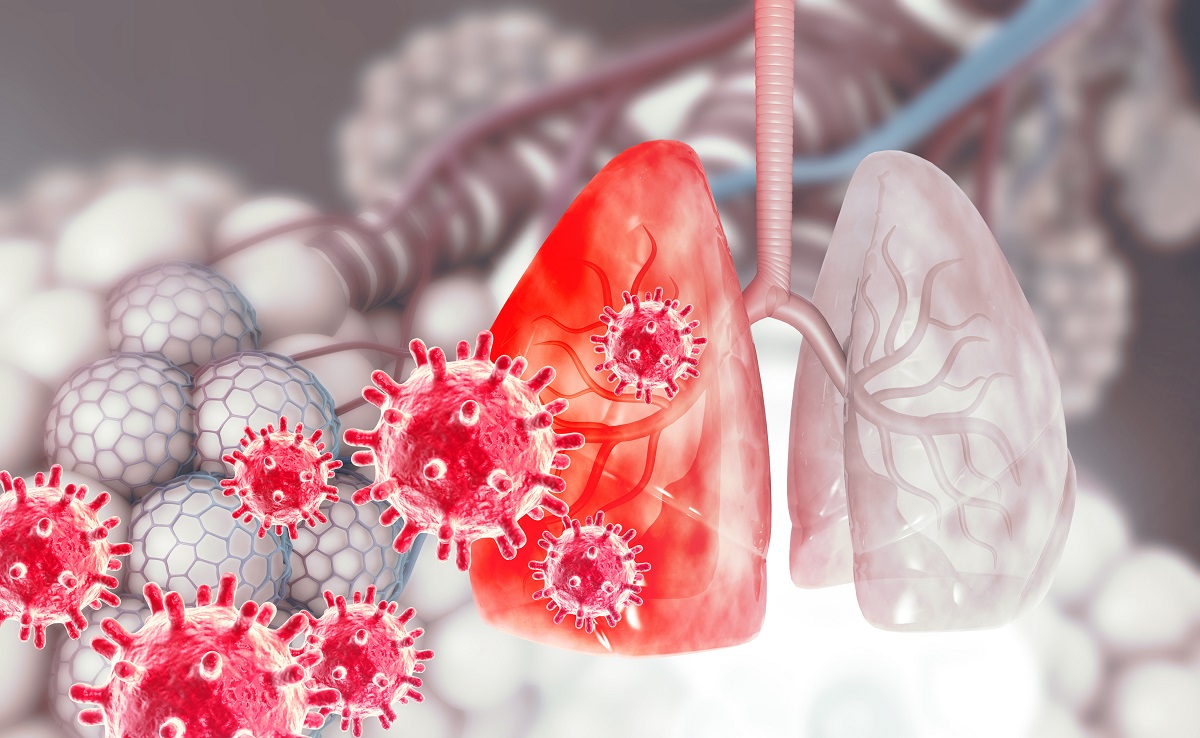KEY TAKEAWAYS
- The EARLY-EGFR trial aimed to determine the prevalence of EGFRm and treatment patterns in NSCLC pts.
- The primary endpoint was to determine the prevalence of EGFRm. Secondary endpoints were the prevalence of EGFRm subtypes and treatment patterns.
- The study found smoking and stage III disease reduce EGFRm odds in resected NSCLC.
Previous research on the prevalence of EGFR mutations(EGFRm) in resected stage I-III non-squamous non-small cell lung cancer(NSCLC) has been retrospective, so the results are not definitive. Researchers aimed to determine the prevalence of EGFRm and treatment patterns in early-stage NSCLC patients(pts).
The study collected data on EGFRm status, treatment patterns, demographics, and clinical and pathological characteristics from consecutively enrolled pts with surgically resected stage IA-IIIB (AJCC 8th) non-squamous NSCLC. The primary endpoint was to determine the prevalence of EGFRm, with secondary objectives including the prevalence of EGFRm subtypes and treatment patterns.
Out of 601 pts (median [range] age: 62 [30-86] years) from 33 centers across the Middle East and Africa (n=16), Latin America (n=80), and Asia (n=505), 52.7% were females, and 58.9% were never smokers. Most had stage IA-IB NSCLC (64.1%) primarily in the right lung (62.9%), with no nodal involvement (81.5%), T1a-T2b tumors (82.7%), adenocarcinoma histology (98.7%), and 25.0% were poorly differentiated. About 23.3% were diagnosed through a screening program, and 11.1% reported a family history of lung cancer. The overall prevalence of EGFRm was 50.7% (300/592). Exon-19 deletions accounted for 50.3%, L858R mutations for 35.7%, and compound mutations for 2.3% of mutations. EGFRm tumors were PD-L1 positive in 38.5% of cases (15/39). Women had a higher EGFRm rate than men (63.6% vs. 36.2%). Pts with EGFRm, compared to EGFR wild type (wt), were more likely to be never smokers (39.5% vs. 60.5%) and have stage I/II NSCLC (46.5% vs. 53.5%). Among 216 stage II/III NSCLC pts, only 51.4% received systemic adjuvant therapy. Significantly higher EGFRm rates were observed in stages I and II compared to stage III NSCLC (P<0.001 and p=0.050), with no significant difference between stages I and II NSCLC (P=0.158).
The study found smoking and stage III disease reduce EGFR mutation odds in resected NSCLC. The need to adhere to ASCO adjuvant chemotherapy guidelines was highlighted.
Source: https://ascopubs.org/doi/abs/10.1200/JCO.2023.41.16_suppl.8531
Clinical Trial: https://www.clinicaltrials.gov/study/NCT04742192
Ross A. Soo, Thanyanan Reungwetwattana, Herman Andres Perroud, Ullas Batra, Saadettin Kilickap, Luis Fernando Tejado Gallegos, Natalia Donner, Mohamed Alsayed, Reto Huggenberger, and Tu Van Dao. DOI: 10.1200/JCO.2023.41.16_suppl.8531 Journal of Clinical Oncology 41, no. 16_suppl (June 01, 2023) 8531-8531.



